-
IP addresses are NOT logged in this forum so there's no point asking. Please note that this forum is full of homophobes, racists, lunatics, schizophrenics & absolute nut jobs with a smattering of geniuses, Chinese chauvinists, Moderate Muslims and last but not least a couple of "know-it-alls" constantly sprouting their dubious wisdom. If you believe that content generated by unsavory characters might cause you offense PLEASE LEAVE NOW! Sammyboy Admin and Staff are not responsible for your hurt feelings should you choose to read any of the content here. The OTHER forum is HERE so please stop asking.
You are using an out of date browser. It may not display this or other websites correctly.
You should upgrade or use an alternative browser.
You should upgrade or use an alternative browser.
15 suspected parcel bombs hit Southwest China
- Thread starter Viron
- Start date
Video captures ‘body’ flying from exploding building as 18th blast rocks China’s Guangxi province on National Day
Confusion over whether anyone was injured in explosion at Liucheng county block of flats on Thursday after 17 blasts on Wednesday kill at least seven people and injure dozens more
PUBLISHED : Thursday, 01 October, 2015, 10:46am
UPDATED : Thursday, 01 October, 2015, 8:46pm
Nectar Gan
[email protected]

This screen grab from Weibo shows what appears to be a person catapulted out of a store during one of the explosions on Wednesday. Photo: SCMP Pictures
A new explosion rocked Liucheng county in China’s southwestern Guangxi province on Thursday morning – the day after a series of bombs hidden in parcels exploded and killed at least seven people and injured dozens more.
The latest blast happened at about 8am in a fifth-floor flat in a residential block on the first day of China’s seven-day National Day.
It caused structural damage to the brick building and led to parts of the brickwork falling onto the street below.
Residents said they felt the building shaking after hearing the sound of a large explosion.
There have been conflicting reports over the blasts because of the chaotic situation in the area.
Xinhua reported that one person was injured in Thursday morning’s blast, but its official Weibo account said in the afternoon that no one had been hurt.
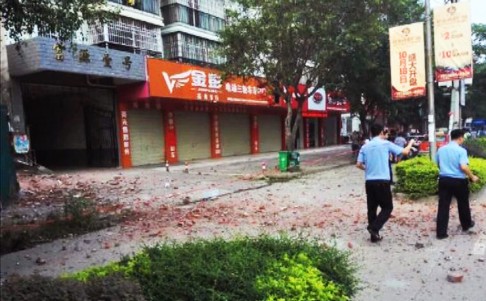
Thursday morning's blast took place in the fifth-floor flat of a building in China's Liucheng county. Photo: SCMP Pictures
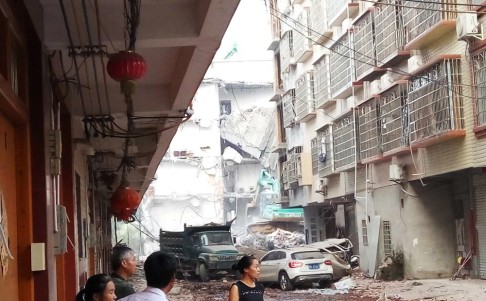
A badly damaged building in Liucheng county following Wednesday's series of bomb blasts, which killed seven people. Photo: SCMP Pictures
Nanguo Zaobao reported on Wednesday evening that a suspect had been arrested, but police said later in the evening that they were still pursuing the suspect.
On Wednesday afternoon, 17 blasts occurred in the county, in the city of Liuzhou and its surrounding area, with the first bang heard at around 3.50pm.
Five of those killed by the explosions died at the scene. Two other people have been reported missing, while more than 50 other people were injured.
Local police said on Wednesday that they had launched a criminal investigation and identified a 33-year-old male suspect, surnamed Wei, from Dapu township.
They claimed the suspect had hired other people to send the parcels, Xinhua reported.
Parcel deliveries have been suspended by the Liuzhou postal service until Saturday.
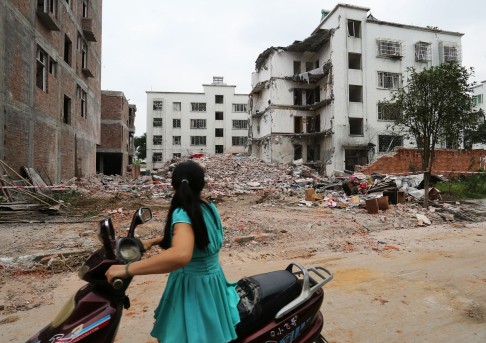
Wednesday's fatal blasts were triggered by explosive devices hidden inside express delivery packages delivered across the county, police said.
Later on Wednesday Nanguo Zaobao reported that Wei had been arrested.
The targets of the earlier attacks include the Dapu township government office, supermarkets, malls, a hospital, prison, bus terminal, an animal husbandry staff dormitory and a centre for infectious disease and prevention.
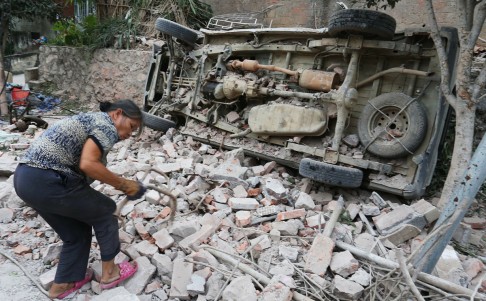
Cai Tianlai, Liucheng’s public security political commissar, told a press conference on Wednesday that tip-offs from the public had led to 60 suspicious courier parcels being identified.
The suspicious parcels were being guarded, pending examination by bomb squad officials, China News Service reported.
Guangxi county hit by another mail bomb blast as police step up hunt for mastermind
Township that bore the brunt of the attacks almost deserted as police continue hunt for 33-year-old suspected of being the mastermind
PUBLISHED : Thursday, 01 October, 2015, 11:29pm
UPDATED : Thursday, 01 October, 2015, 11:29pm
Mimi Lau in Guangzhou and Jun Mai in Liucheng, Guangxi

Liucheng county residents survey a parcel bomb site.
Liucheng was rocked by another powerful blast yesterday as mainland police hunted for a 33-year-old man suspected of masterminding Wednesday afternoon's deadly string of parcel bomb attacks in the Guangxi county.
The latest explosion erupted at about 8am in a fifth-floor flat, causing structural damage to the brick residential building.
There were no reports of casualties from the parcel bomb and the authorities did not specify where in the county the attack took place.
A day earlier, at least seven people were killed and dozens more injured when 17 bombs hidden in parcels exploded in the county in the southwest province in just two hours.
The parcels were delivered by courier and hit government offices, hospitals, supermarkets, malls and a bus terminal.
Postal services in the area have been suspended until Sunday to give explosives experts time to examine 60 suspicious parcels.
Dapu, the township at the heart of the county and at the centre of Wednesday's blasts, was a ghost town yesterday, the start of the "golden week" National Day break.
Performances had been scheduled for Dapu's downtown area, but most shops were shut and few people were on the streets.
Bike shop owner Luo Kui likened the latest blast to a mine explosion.
"The bang was loud and deep … It's an act of defiance," Luo told the South China Morning Post.
Other residents said they felt buildings shake after hearing a large explosion.
A 45-year-old witness said he was standing just 20 metres from one of the blast sites near a security guard's office at the Hairun Sunshine residential estate on Wednesday afternoon.
"I saw people, covered in blood, running for their lives and screaming for help. The windows in all the nearby buildings were shattered," he said.
Another witness said she saw thick smoke stream from a wet market after it was hit. "At first we thought the explosion was caused by a gas leak but we realised it was deliberate as soon as about four took place nearby in just a few minutes," she said.
A media gag appeared to have been imposed over the incident, with popular news websites replacing their own stories on the explosions with a Xinhua report.
The Southern Metropolis News removed a report that said the suspect was a local quarry worker with a passport and travel documents for Hong Kong and Macau.
The police said on Wednesday they were pursuing a Dapu man suspected of carrying out the scheme.
Courier services have become an everyday part of life on the mainland as internet shopping has grown in popularity.
Starting of a Chinese revolution to overthrow the Communist?
A loud bang, then chaos: residents of Chinese town hit by string of parcel bombs recall horror ordeal
Horror as residents of a backwater county rocked by 17 parcel bombs in two hours on Wednesday wake to sound of a new explosion
PUBLISHED : Friday, 02 October, 2015, 12:25am
UPDATED : Friday, 02 October, 2015, 12:26am
Nectar Gan
[email protected]

Guesthouse workers in Liucheng county in Guangxi province knew something had gone very wrong the second they heard the bang.
"It was huge. I could feel the tables and cups in the guesthouse shaking," a clerk told the Beijing Youth Daily.
The explosion destroyed the ticket office of Dapu township's bus station shortly before 4pm on Wednesday.
Over the next couple of hours 16 more blasts occurred around the county, killing seven people and injuring more than 50.
Within seconds of the bus station explosion, another blast took place about 400 metres away, knocking half of the dormitory of the county's animal husbandry bureau to the ground.
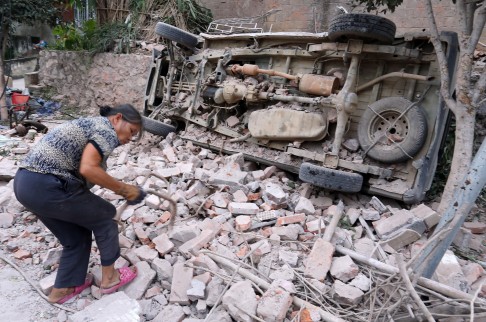
The force of one of the blasts overturned a truck in Liucheng county. Photo: SCMP Pictures
Li Acheng was sitting in his fruit store 350 metres from the collapsed building when the blast hit. The shock waves were so powerful they shattered some of his shop windows.
"I was shocked … My hair was flying in the air from the shock waves," the 30-year-old told the South China Morning Post.
"I walked outside to see what had happened and was almost hit by a falling window from the third floor," he said.
Three people were killed at the scene and five injured.
Minutes later, there was a blast at a fish stall at the local farmer's market. A few badly injured people were carried out by firefighters, said a witness, Qin, who was working at a dental clinic down the street.
About half an hour later, there was an explosion in the convenience store right next to Qin's clinic. "I ran outside, and saw people running out from the store. Everyone was in a panic."
On Qin's way home, he saw the wreckage of a tricycle outside the Chinese medicine hospital.
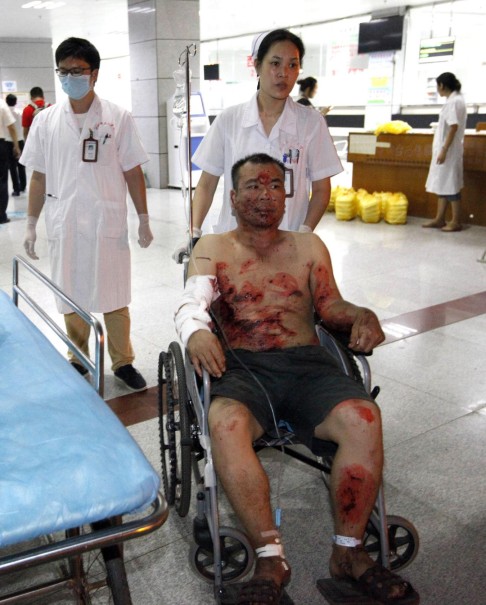
A blast victim is treated in hospital for injuries inflicted by a parcel bomb. Photo: AFP
A store owner near the hospital told the Daily she heard more than 10 explosions after 4pm, including one in a flat in the residential block behind the hospital and another at a supermarket.
Photos of the blast sites taken by witnesses started to circulate on Weibo from 5pm. Local media were quick to pick up the story, followed by state media.
The county's work safety bureau sent out texts to residents at about 5.10pm, informing them of what it suspected were parcel bombs around the country and telling them not to unwrap recently received packages.
Shortly before 6pm, the county's public security bureau issued its first report on the incident, acknowledging a series of explosions had taken place in the afternoon. It listed 13 locations where explosions had been reported.
Liuzhou city's propaganda department issued a statement 20 minutes later, saying that initial investigations showed the blasts were caused by bombs hidden in courier parcels.
At about 9.20pm, Liuzhou police said they had launched a criminal investigation and identified a 33-year-old male suspect, surnamed Wei, from Dapu township, according to Xinhua.
The local government held a press conference after 9pm, announcing that 17 explosions had taken place from 3.15pm to 5.30pm, killing seven people, injuring another 51, and leaving two people missing.
After a quiet night, the county woke up to a new explosion at about 8am yesterday. The blast took place in a fifth-floor flat in a residential block. No one was injured.
"I'm so scared. I haven't gone out since returning to my home yesterday afternoon," Qin said hours after yesterday's blast.
"Who would have expected such a horrible thing would happen here in Liucheng."
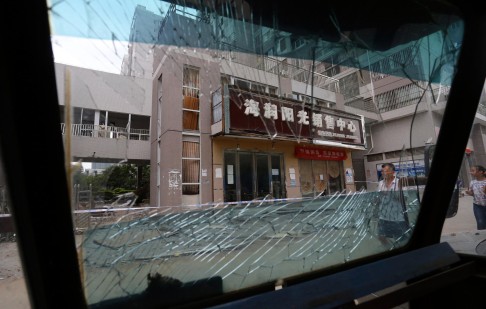
The explosions damaged many buildings in Liucheng county. Photo: SCMP Pictures
Last edited:
Mail bombs lay ruin to Chinese county as 7 killed, dozens injured in 17 sites across Guangxi’s Liucheng
Police arrest male suspect linked to the blasts that killed at least seven people and left buildings damaged across county in Guangxi
PUBLISHED : Wednesday, 30 September, 2015, 6:30pm
UPDATED : Thursday, 01 October, 2015, 6:36pm
Mimi Lau in Guangzhou
[email protected]

Internet users shared photos of the collapsed building on Weibo. Photos: Weibo
Bombs hidden in courier parcels delivered to various locations across a county in Guangxi province exploded yesterday, killing at least seven and injuring dozens ahead of the seven-day National Day holiday.
The blasts occurred at the seat of Liucheng county, in the city of Liuzhou, and its surrounding areas, with the first bang heard at around 3.50pm, state media Xinhua reported. Five people died at the scene.
Local police said they had launched a criminal investigation and identified a 33-year-old male suspect, surnamed Wei, from Dapu township. The blasts were triggered by explosive devices hidden in express delivery packages, police said.
Nanguo Zaobao reported that Wei had since been arrested.

Dozens of people were injured in the blasts. Photos: Weibo
There were at least 17 blasts, media reports said, with targets of attack including the Dapu township government office, supermarkets, malls, a hospital, prison, bus terminal, an animal husbandry staff dormitory and a centre for infectious disease and prevention.
Explosions also occurred in other areas around Liuzhou, the media said, citing the city's public security department.

People rush to the aid of those injured. Photos: Weibo
More than 50 people were injured in the blasts and two people missing, but the authorities had ruled out a terrorist attack, China National Radio reported, citing police information.
On Dapu's Dongcheng Road - one of the blast sites - part of a building had collapsed. Nearby vehicles were also damaged.

A provincial government building (left) and a vehicle damaged in the blasts. Photos: Weibo"I was sitting in my shop when I heard a sudden loud bang. I was in shock … My hair was flying in the air from the shock waves," said Li Acheng, 30, owner of a fruit store 350 metres from the collapsed building.
"Some windows in my shop broke. I walked outside to see what had happened and was almost hit by a falling window from the third floor.
"I saw half of a building nearby collapse.
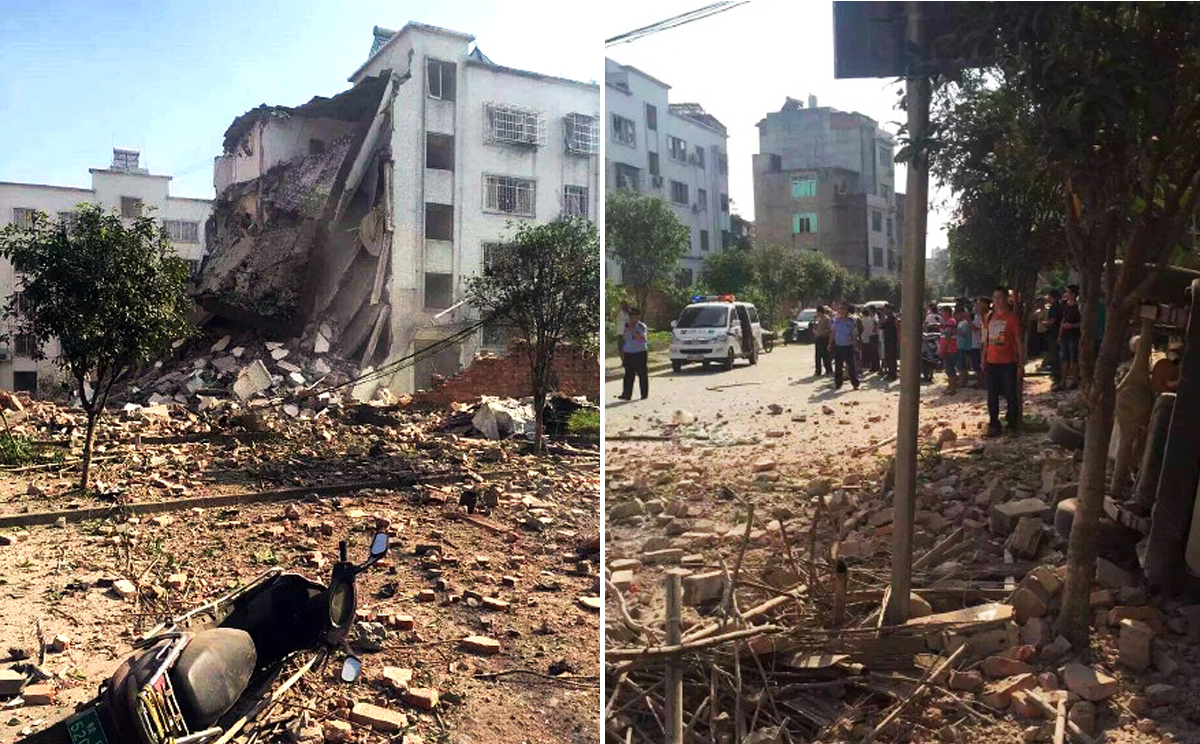
Part of a building (left) collapsed after the multiple explosions in Liucheng county, Guangxi province. Photos: Weibo
"We were all very shocked and thought it might be an act of terrorism. All shops were closed and the town is under curfew with police guarding every street … It was very scary with so many attacks in just over an hour."
Li and his family left the town for a nearby village, fearing further attacks.
Pictures online showed injured victims, damaged buildings, and wrecked vehicles.
A witness told Thepaper.cn that she heard sounds of explosions while shopping at a mall for electrical appliances.
She remained traumatised by the shock of the blasts even hours later, she told the online news portal, and ran to a nearby field beside a river bank, refusing to return home.
Speaking at a press conference, Liucheng county public security political commissar Cai Tianlai said a total of 60 suspicious courier parcels had since been identified after reports from members of the public.
The suspicious parcels were being guarded, pending processing by a bomb squad, according to China News Service.

Local authorities had activated their emergency response mechanism and the local safety administration had sent out an emergency alert, saying the series of explosions had been triggered by parcel bombs and warning the public not to open parcels, Nanguo Zaobao reported.
Safety rules no guarantee of security as parcel bombs slip through delivery checks in China
PUBLISHED : Friday, 02 October, 2015, 12:12am
UPDATED : Friday, 02 October, 2015, 12:13am
Alice Yan
[email protected]

A motorist surveys the blast scene in Liucheng county, Guangxi. Photo: SCMP Pictures
A regulation that came into force last month requiring express companies to install surveillance cameras and other security measures failed to prevent the series of parcel bombs that killed seven people in Guangxi .
Under the regulations, brought in following various incidents, express companies must install cameras linked to postal authorities in their centres and keep footage from the devices for at least 30 days.
From next year, senders of parcels must also show their identity cards and register with their real names, Thepaper.cn reports. The system has been rolled out in Zhejiang and Ningxia but workers in the industry said it was difficult to enforce the rules.
The manager of a Yunda Express centre in Ningbo , Zhejiang, said customers were unwilling to cooperate and complied with the identity demands just 10 per cent of the time, the Modern Golden News reports. Some customers also became abusive when asked to give their real names, he said.
Wang Enbin, a courier at SFExpress in Shanghai, said that every time there was an explosion, his employer would send him a reminder about the need for safety checks.
"We are told to be careful every day. The fate of our career hinges on parcels," he said.
"Not long ago two of my colleagues were suspended because bags they collected contained banned articles."
Wang said he usually just asked regular customers about the contents of their packages but checked thoroughly every item sent by people he did not know.
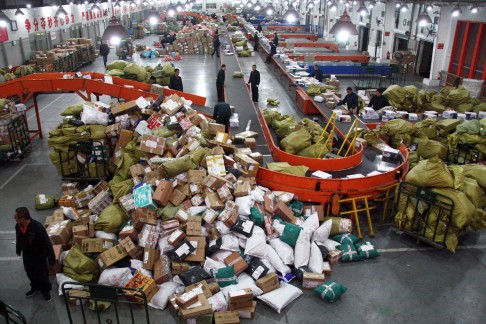
An express facility in Weifang, Shandong province. Courier services have grown as internet shopping has boomed. Photo: Xinhua
Courier services have become an integral part of life for urban families as e-commerce booms. Last year, 14 billion parcels were delivered across the country, more than in any other part of the world.
In 2007, the State Post Bureau listed items banned from delivery, including detonators, explosives, gunpowder and fireworks.
A 2011 bureau edict also insisted that couriers open a parcel at the pick-up to check what was inside. If customers refused to allow the contents to be examined, the parcel could not be sent, it said.
The bureau underscored the need for checks after a Guangzhou man sent a parcel bomb under an assumed name to someone he suspected of turning his former girlfriend against him. The bomber was sentenced to life in prison and both he and the courier company were ordered to compensate the recipient for injuries sustained when the device went off.
Two workers also suffered minor burns when a parcel bomb exploded at an express company in Hangzhou , Zhejiang, in 2011.
The sender of the package was detained and later confessed that he was seeking revenge against his former boss who ran a piano store, the Qianjiang Evening News reported.
Six bitter disputes between Chinese authorities and public that ended in violence
PUBLISHED : Thursday, 01 October, 2015, 8:49pm
UPDATED : Thursday, 01 October, 2015, 9:30pm
Naomi Ng
[email protected]

A badly damaged building in Liucheng county following Wednesday's series of bomb blasts, which killed seven people. Photo: SCMP Pictures
A new explosion rocked Liucheng county in China’s southwestern Guangxi province on Thursday morning – the day after a series of bombs hidden in parcels exploded and killed at least seven people and injured dozens more.
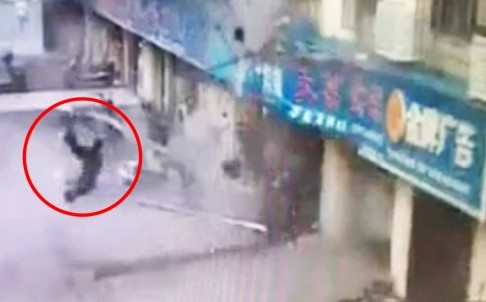
This screen grab from Weibo shows what appears to be a person catapulted out of a store during one of the explosions on Wednesday in China’s Guangxi province. Photo: SCMP Pictures
Police have launched an investigation and ruled out any terrorist link to the attacks. They have also identified a male suspect in the matter.
Here we take a look at just six of the many incidents in China in which people have resorted to violence because of social grievances, including disputes over local government compulsory land purchases and failed compensation claims.
________________________________________________
1. Nine deadly bombs set off as 'revenge'
Taiyuan, November 2013
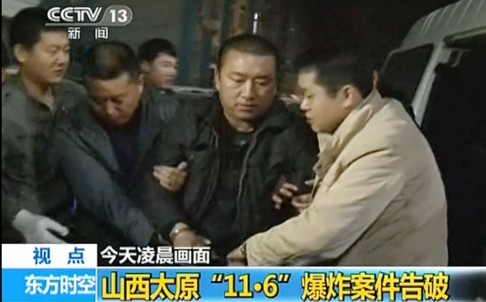
Chinese state television showed police escorting Feng Zhijun after his detention in November 2013. Photo: SCMP Pictures
At least one person died and eight others were injured when nine homemade bombs exploded near the Shanxi Communist Party’s offices during the morning rush hour in the centre of Taiyuan city.
Pandemonium broke out as panicked crowds struggled to escape from the area.
Metal ball bearings and bomb circuit detonators were found lying on the ground close to the site of the explosions, state-run Xinhua news agency said.
Feng Zhijun, a former convict from Taiyuan, who had served nine years in prison for a 1989 theft, was later arrested.
He confessed to police that he had wanted to “take revenge against society”.
At his trial the court was told he had set off the bombs after failing to halt local government plans to demolish his home.
In April 2014 Feng was convicted of setting off the explosions and sentenced to death.
2. School bombed after migrant's child rejected
Guilin, September 2013
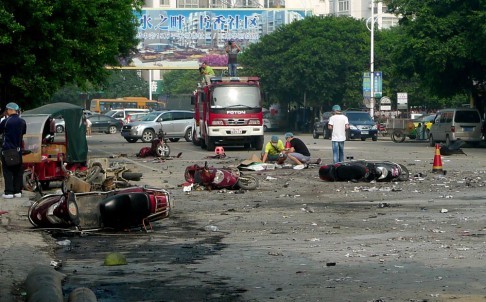
Damaged motorbikes and debris lie on the ground after the explosion outside a primary school in Guilin, in China's Guangxi province in September 2013. Photo: AFP
An unnamed migrant worker in his 30s killed himself and another person after detonating a bomb as he rode a motorcycle past a primary school in Guilin.
The blast also injured 44 other people, including 22 children from the school.
Earlier the school had refused to accept the man’s child as a pupil.
The shortage of educational opportunities in cities for the children of migrant workers has long been a problem and a source of resentment on the mainland.
3. Man sets of airport bomb ‘by accident’
Beijing, July 2013
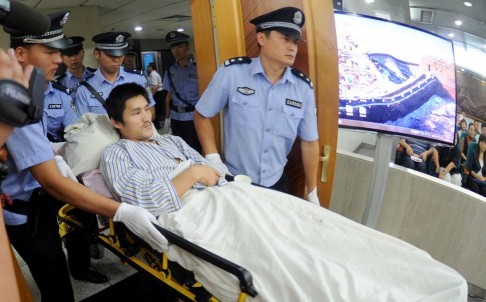
Ji Zhongxing is taken to hospital after being injured by a bomb he was holding during a protest at Beijing Capital International Airport in September 2013. Photo: Xinhua
A disgruntled wheelchair-bound migrant worker, Ji Zhongxing, set off a home-made bomb near the international arrivals gate at Beijing Capital International Airport in 2013.
The blast blew off Ji’s left hand and also injured a police officer.
At his trial, Ji claimed he had detonated the bomb unintentionally while holding it in his hand, while protesting about police brutality, which he claimed had left him paralysed.
He also said he had “lost all hope with society”. Ji was jailed for six years.
4. Protester kills 46 commuters in bus fire
Xiamen, June 2013
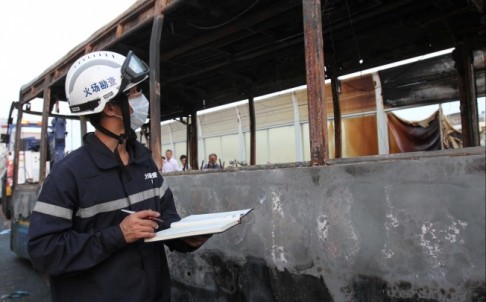
A firemen examines the burned out bus in which 47 people travelling during the evening rush hour died in Xiamen in June 2013. Photo: Xinhua
Chen Shuizong, 59, killed himself and 46 others, and injured a further 34 people after setting fire to a crowded bus during the evening rush hour in Xiamen in 2013.
He had already posted messages online complaining about being unable to receive any social security insurance payments because of a clerical error by police when recording his age.
He claimed they had also refused to take his complaints seriously.
Authorities confirmed that he had started the blaze and also left behind a suicide note.
5. Disabled bomber dies during grievance talks
Shandong province, September 2012
A wheelchair-bound suicide bomber killed himself and injured six other people after setting off a bomb while meeting local government officials in Rongcheng, in Shandong province, to discuss his grievances.
Qu Huaqiang, 49, a former construction worker, had spent years demanding for extra compensation after being left paralysed by a work-related spinal injury following a crane accident in 1992.
He had claimed that his complaints had fallen on deaf ears.
6. Dead man tricked into carrying bomb
Yunnan province, May 2012
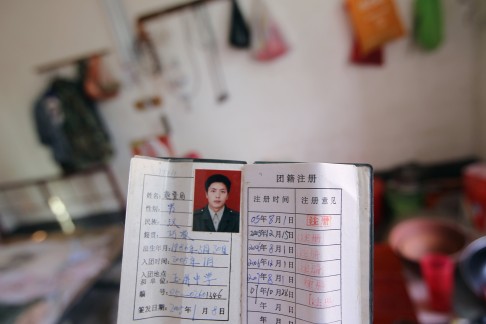
A booklet belonging to Zhao Dengyong, who died after being duped into carrying a bomb inside rucksack which went off when he walked into a community centre in Yunnan province. Photo: Simon Song
Police accused Zhao Dengyong of being an extremist and a suicide bomber after he was killed when a bomb he unwittingly carried into a crowded community centre detonated in Qiaojia county in 2012.
The blast also killed three others and injured another 16 people.
However, police were forced to reinvestigate the blast after protests by Zhao’s relatives and friends.
Three months later the truth emerged, and they had to apologise for their “careless and inaccurate findings”.
They had discovered that two villagers with grievances about local government plans for compulsory land purchases had paid Zhao 100 yuan (HK$122) to carry a backpack into the centre, where residents were discussing relocation plans.
Death toll from China letter bombs rises to 7
Source: Xinhua Published: 2015-9-30 22:53:00
Death toll from 17 suspected letter bombs in south China's Guangxi Zhuang Autonomous Region on Wednesday afternoon has risen to seven, with two missing and another 51 injured.
The explosions occurred at the seat of Liucheng county and the surrounding areas, including a shopping mall and the dorm of a local animal husbandry bureau, with the first heard at about 3:15 p.m.
Three people died in the dorm, which was badly damaged.
Police have identified a 33-year-old man named Wei, a native of Liucheng county, as a suspect.
The Ministry of Public Security has sent criminal investigators to the scene.
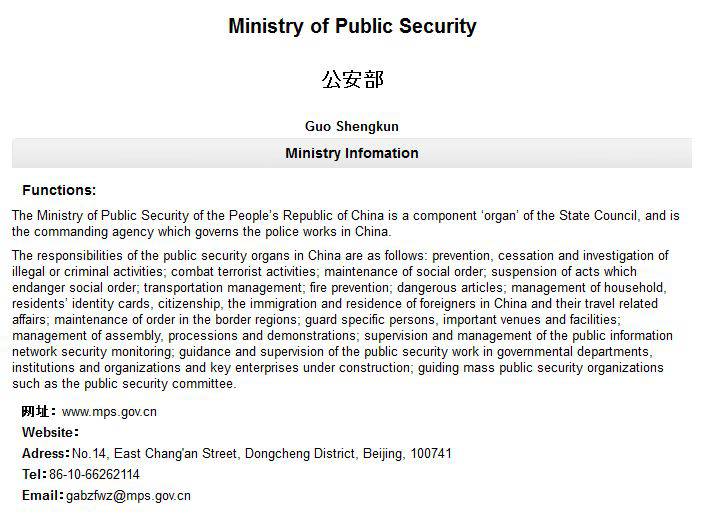
Starting of a Chinese revolution to overthrow the Communist?
Affirmative. Proof is on the last posting.
Chinks are scums....
Let them bomb each other to kingdom come.....
Let them bomb each other to kingdom come.....
http://video.sina.com.cn/p/news/c/v/2015-10-02/173965088807.html
The killer was the rock quarry man who had been in dispute with villagers opposing his business, because his quarry blasting was nuisance to the villagers. So he revenged by courier bombs to villagers and also in the final blast killed himself.
The killer was the rock quarry man who had been in dispute with villagers opposing his business, because his quarry blasting was nuisance to the villagers. So he revenged by courier bombs to villagers and also in the final blast killed himself.
Suspect in Guangxi parcel bomb attacks confirmed dead
PUBLISHED : Friday, 02 October, 2015, 5:33pm
UPDATED : Friday, 02 October, 2015, 11:59pm
Nectar Gan
[email protected]

A building lies destroyed in Liucheng county in Guangxi after a series of parcel bomb explosions. Photo: Kyodo
The suspect in a series of deadly parcel bomb attacks in Guangxi has been confirmed dead in one of Wednesday's explosions, Xinhua reported on Friday, citing Liuzhou city police.
Police said Wei Yinyong, 33, made a number of time bombs, delivering them himself or sending them via couriers in Liucheng county.
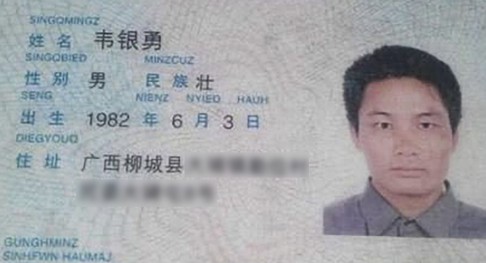
The authorities also revised up the death toll from the blasts from seven to 10, with another 51 injured.
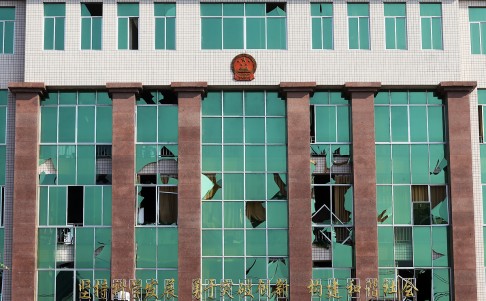
Police said Wei launched the attacks in anger over conflicts with villagers who lived near his quarry and some government departments.The damaged Liuzhou City Government Office. Photo: Dickson Lee
Guangxi parcel bomb suspect ‘was angered by government failure to end village fight over family quarry’
PUBLISHED : Friday, 02 October, 2015, 7:17pm
UPDATED : Saturday, 03 October, 2015, 12:04am
Jun Mai in Liucheng, Guangxi

Suspect Wei Yinyong was reportedly frustrated by a dispute over a quarry in which he had a stake. Photo: SCMP Pictures
The sole suspect in a series of deadly parcel bomb attacks in Guangxi has been confirmed dead in one of Wednesday’s explosions, Xinhua reported on Friday, citing Liuzhou city police.
Police in Guangxi said the blasts were carried out by 33-year-old Wei Yinyong, and DNA tests had confirmed his remains were at one of the blast sites, the report said. No other suspects were named in the report.
The county of Liucheng was rocked by a series of blasts this week – 17 on Wednesday afternoon and one the next morning, which together claimed 10 lives and injured 51 people.
The explosions were all caused by time bombs Wei either delivered himself or sent by courier, the report said. The brief police statement said Wei was in dispute with villagers over a stone quarry he had a stake in.
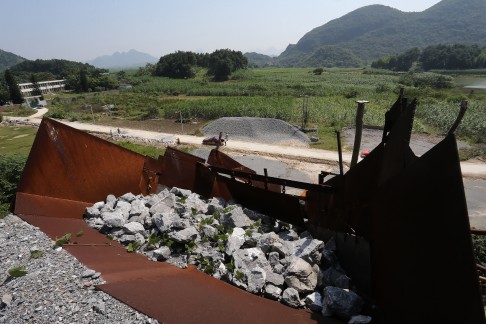
Wei invested heavily on Zhihao Stone Quarry, before angry villagers smashed the machines and forced it to close. Photo: Dickson Lee
Wei’s brother and father told the South China Morning Post on Friday that Wei was frustrated when protesting villagers forced the closure of the quarry and the local authorities failed to negotiate a solution.
Wei had been the manager of the Zhihao Stone Quarry since it opened in 2003. The quarry was named after its founder Wei Zhihao, who became Wei’s father-in-law in 2009. The quarry had a major upgrade in 2010, with both men taking out bank loans to buy more than a million yuan’s worth of equipment, according to Wei’s brother, who would only identify himself as Luo.
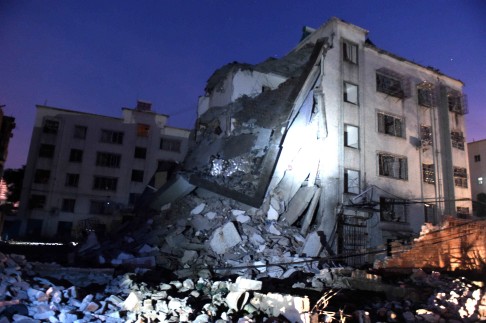
Building stand in ruins at a blast site in Liucheng county, Guangxi. Photo: Xinhua
Angered by the frequent explosions at the quarry, more than 100 residents from the village of Zhaijiaotun, less than 1km from the site, marched to the quarry on October 28, 2013, and smashed the machines, forcing an immediate shutdown.
Luo said Wei became withdrawn in the second half of 2014 after repeated requests to local government departments to resolve the dispute ended without success.
“He knew there was no way the quarry could reopen but he just wanted a solution from the government,” Luo said.
His frustration was evident on a social media page which Luo confirmed was created by his brother.
“When it comes to a day when I become crazy, please remember I have been fooled like an idiot when I was pure and innocent,” the page’s main post said.
Villagers confirmed Luo’s account of the smashed equipment.
“His quarry was smashed for a reason,” one resident said, as government officials watched nearby. “Kids were scared of the sound of the explosions and windows were damaged by its shock waves.”
The quarry was built on the father-in-law’s land but the project should not have gone ahead without their approval, residents said.
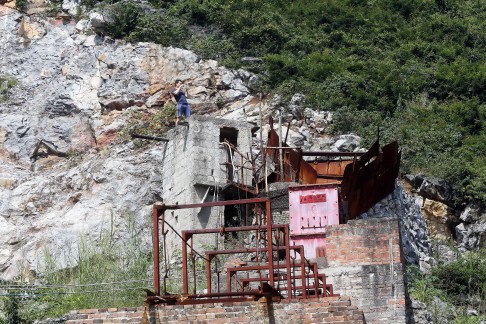
Wei Yinyong had a stake in a quarry that was attacked by villagers upset by frequent explosions at the site. Photo: Dickson Lee
Wei Yinyong, father of a six-year-old daughter and a one-year-old son, was home for dinner on Tuesday, the day before the explosions, but said nothing special, according to his father. “He was a well-behaved kid and had no bad thoughts,” the father said.
Wei Yinyong’s father and brother were both taken away by police on Wednesday night but were released a day later. The brother was taken away again on Friday. Wei Yinyong’s wife and father-in-law were also in custody for questioning.
Wei Yinyong’s father and brother said they could not believe he planned the explosions.
“I don’t accept the accusations. There’s not enough evidence,” the brother said.
Deadly Guangxi blasts: ease in getting explosives shows major flaw in China's security
PUBLISHED : Friday, 02 October, 2015, 12:48pm
UPDATED : Friday, 02 October, 2015, 4:18pm
Reuters in Beijing
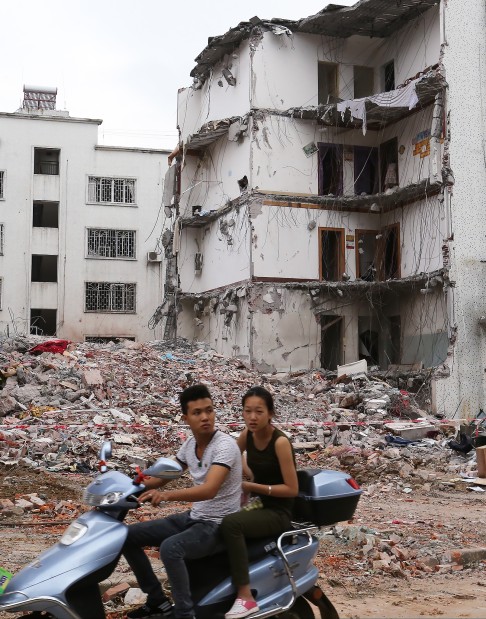
A partially collapsed residential building, which was damaged after a suspected parcel bomb exploded in Liucheng county, in Guangxi Zhuang autonomous region on Wednesday. Photo: Dickson Lee
A series of deadly bomb blasts in China this week has shown how easy it is to obtain explosives in the country – exposing a major gap in the mainland’s huge security apparatus as the economy slows and anger grows over issues such as corruption and poor public services.
In a country where firearms are banned for most people, the bombings in the southwestern city of Liuzhou, in the Guanxi autonomous region, on Wednesday and Thursday, and other places around the country in recent years, demonstrate lax enforcement of rules that control access to bomb-making materials.
Private gun ownership is also banned on the mainland, but many thousands of illegal weapons are traded on the black market.
The 18 coordinated blasts across Liuzhou, which lies in a relatively obscure part of China, destroyed one whole side of a low-rise residential building, overturned vehicles and sent bricks showering into the street, images carried by state media television and newspapers showed.
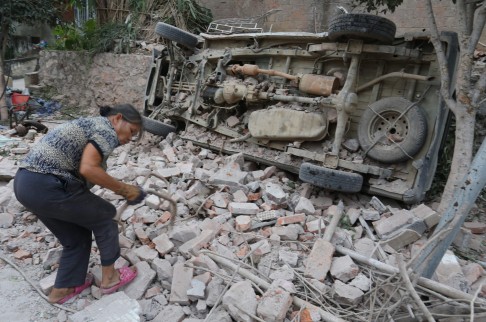
The force of one of Wednesday's blasts in Liucheng county, in Guangxi Zhuang autonomous region, overturned a truck
The explosions killed at least seven people and injured more than 50.
The attacks have been blamed on one individual in the city, but such “sudden incidents” – as Beijing refers to them – highlight broader government fears about stability in the world’s second-largest economy, with a widening gap between rich and poor and growing anger at corruption and environmental issues.
“Modern Chinese society has lots of contradictions, and if people want to send a message about their anger or make a point, they can get explosives from any mine,” said Pan Zhiping, a domestic security expert at the Xinjiang Academy of Social Sciences.
“It simply isn’t possible for the police to keep an eye on everybody,” he said.
The ease with which explosives can be obtained on the mainland was underscored in a court case posted online earlier this year as part of a government transparency drive.
In September last year, a court in southwestern China’s Yunnan province jailed a man for three years after finding more than 20kg of explosives, almost 100 detonators and 1.5km of fuses at his house.
The man, whose surname was given as Ren, told the court he had found it easy to buy the materials by claiming that they were needed for his job, according to the court ruling.
In fact, Ren said he had been buying the explosives and storing them at home for the past decade without any problems, even though he seemed to have no violent intent.
The government said it was not aware of any motive for this week’s attacks in Liuzhou in the southwestern region of Guangxi after ruling out terrorism.
The suspect in the bombings, a 33-year-old man identified only by his surname, Wei, had used other people to send the parcel bombs, according to Xinhua news agency.
“It indicates a serious problem in China in terms of public security,” said Jian Zhang, a lecturer in international and political studies at the University of New South Wales, in Australia.
It reflects a lack of effective control by the government to restrict access to these dangerous goods.”
Guangxi is home to many mines, which regularly use explosives, and like the rest of China, has numerous firework factories.
Last year, police in Liuzhou arrested a father and son who were “unhappy with society and wanted revenge” and blew up trash cans in a public square using home-made firecrackers, injuring a female bystander, state media reported.
Property disputes in a country where the government legally owns all land, including the compulsory purchase of properties and farmland, have also led to unruly protests, fights with police, imprisonment and even suicide, and created a major headache for the stability-obsessed ruling Communist Party.
In 2011, a man apparently angry about the illegal demolition of his home set off coordinated explosions at three sites near government buildings in eastern China, killing two people.
In the same month, a petrol bomb set off by a disgruntled former employee at a rural bank in a heavily Tibetan region of northwestern China’s Gansu province wounded 49 people.
The worst incident of its kind happened in 2001, when a string of explosions at workers’ dormitories in the northern city of Shijiazhuang killed 108 people.
The bombing was blamed on a man, who was reportedly seeking vengeance for family problems, although many people have doubted that explanation.
Similar threads
- Replies
- 0
- Views
- 363
- Replies
- 0
- Views
- 231
- Replies
- 0
- Views
- 318
- Replies
- 9
- Views
- 566
